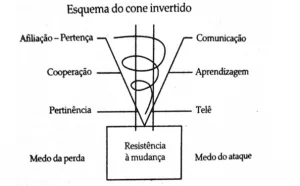EXPERIENCE REPORT
SANTANA, Joíza Maria de Oliveira [1], RAMALHO, Renan Enes [2], NASCIMENTO, Joelma Sampaio do [3], NASCIMENTO, Pedro Carlos Lira do [4]
SANTANA, Joíza Maria de Oliveira. Et al. Implementation of a psychology clinic in an emergency care unit: an experience report on mental health care for health professionals during the COVID-19 pandemic. Revista Científica Multidisciplinar Núcleo do Conhecimento. Year 06, Ed. 07, Vol. 09, pp. 18-30. July 2021. ISSN: 2448-0959, Access Link: https://www.nucleodoconhecimento.com.br/psychology/emergency-care
ABSTRACT
Introduction: In 2020 Brazil faced the first wave of contamination by SARS CoV-2 and currently there is the second wave of the virus’s peak. In view of this, virtually all Brazilian states suffered a collapse in the health system with overcrowding and waiting lines for treatment in intensive care units. Health professionals were the first class of workers to suffer the impacts of this pandemic due to vulnerabilities arising from their work activity. Research problem: It was questioned how a psychological duty service could contribute to minimize psychological and emotional impacts, creating a psychological outpatient clinic to care for frontline health professionals of the Emergency Care Unit of the South Zone of the municipality of Porto Velho. Objectives: The aim of this study is to discuss the perception of authors in the construction, implementation and performance in the Psychology service in the municipal unit aiming at promoting the psychoemotional health of professionals during this period of crisis. Methodology: The methodology adopted consisted of a descriptive study, in the modality of Experience Reporting. The helpline used in this space was based on the approach of brief psychotherapy and psychological shift format. Results: The presence of the psychologist in welcoming health professionals provided psychological and emotional support with a focus on preventing the illness and promoting workers’ health in the face of the current pandemic situation. Conclusion: The benefits of an outpatient clinic for health professionals in the units are essential so that they can take care of their quality of life even in the face of a pandemic.
Keywords: Health professionals, mental health, pandemic, covid-19.
1. INTRODUCTION
The World Health Organization in March 2020 raised thousands of cases of infection by the new coronavirus to pandemic status due to its incidence in various parts of the world. Information was published daily in the media with reports about the high degree of transmissibility of the virus, as well as the illness and worsening of patients who needed hospitalization and intensive care. With the numbers increasing in large magnitude, health professionals were the first class of workers to suffer the impacts of this pandemic due to a higher risk of contamination, exhaustion, absences, deaths and development of mental illnesses resulting from their work activity.
Throughout Brazil, up to April 2021, 81,574 cases of covid-19 were confirmed in health professionals. The professions with the highest case record were nursing technicians or assistants (24,062) followed by nurses (25,718), physicians (8,839), among other support professionals (MINISTÉRIO DA SAÚDE, 2021).
In the crisis scenario evidenced, the health professional who was naturally already exposed to work adversities is, at the present time, facing even greater challenges in his field of activity. Ornell et al. (2020), identifies some of these challenges as:
- Vulnerabilities and exposure to the virus.
- The fear of contaminating yourself and your loved ones.
- Longer and more exhaustive working hours due to the removal from the work of their peers and even their death.
In addition, due to the new rules for restricting visits and circulation in many health units, as well as the isolation criteria created for the care of patients diagnosed with COVID-19, the health professional was the only one to be at their side. The expected result was greater emotional exhaustion when having to evoke multiple coping strategies in addition to fulfilling their technical function, embracing the suffering of patients and family members, and managing their level of stress arising from the accumulation of duties. In addition, psychological disorders such as Burnout Syndrome, anxiety and depression that were often pre-existing, at this time, emerge in great intensity (ORNELL et al., 2020).
With this scenario exposed, it was questioned how an outpatient mental health service of psychological reception could contribute to the minimization of the psychological and emotional impacts of health professionals in an emergency care unit.
Thus, the aim of this study is to discuss the perception of the authors in the construction, implementation and performance of the Psychology service in a municipal unit aimed at promoting the psychoemotional health of frontline professionals since the said unit to which the service was offered does not have psychologists crowded by the Municipal Health Department.
Studies within the crisis care line indicate that assisting the person in crisis can prevent the establishment of psychic illness, establishing more effective strategies to deal with traumas and their possible elaboration. Cury apud Perches (2009), emphasizes that the opportunity to receive qualified listening at a critical moment, significantly reduces the level of anxiety and enables the elaboration of adaptive responses and positive coping for the search for solutions to the problem experienced.
2. EXPERIENCE REPORT
Considering that the emergency care unit of the southern region (UPA SUL) of the city of Porto Velho became a semi-intensive unit, aimed at patients infected by covid-19 in need of hospitalizations for a long time and awaiting the transfer to other reference units, psychological support was requested by its coordinator to support frontline health professionals working in the unit, since the emotional distress and wear and tear arising from the demand for exhaustive work was noticeable, added to the high rate of deaths of patients in the municipality of Porto Velho in the same period.
From this request, an extension project was developed prepared by the Psychology residents of the Emergency And Emergency Program of the Multiprofessional Residency Commission (COREMU) of the Health Secretary of the state of Rondônia (SESAU) to work in the field of the Emergency Care Unit of UPA SUL.
The Multiprofessional Residency in Health as a graduate modality constitutes a privileged form of training in public health, since it provides for the training of professionals focused on the real health needs of the population because the practice is carried out within the scope of the Unified Health System (SUS). We highlight the important theoretical workload and the daily monitoring of teachers and experienced professionals of the service, who support the integration between theory, practice, teaching and health service (FILGUEIRAS et al., 2013, p.29).
The extension project expanded the health care service promoted by the Emergency Program of The Multiprofessional Residency in Health, expanding the psychological services provided to the municipal unit that needed support in times of pandemic.
The activity carried out at UPA SUL consisted in the implementation of a Psychology outpatient clinic that aimed to meet the psychological needs of health professionals active in the unit. According to the methodology provided for in the project, the service period was from April to July of 2021. The inclusion criterion was through spontaneous demand in the search of these professionals for the psychology service offered, being excluded the care of their family members or servers of other units other than the UPA SUL.
Through the availability of contact through a virtual communication application it was possible to perform the scheduling of the screenings as well as the marking of sessions. This tool provides autonomy for the search for the service, since it reduces the need for exposure of the server in resorting to the psychology service, promoting greater secrecy even though the outpatient clinic is being carried out in the same unit.
The care occurred according to the current sanitary regulations, with the use of a mandatory mask, as well as the use of 70º alcohol for asepsis of the hands, before and after psychological care. The servers were also instructed to reschedule or cancel the calls if they presented flu-like symptoms.
The care occurred in the psychological shift model with individual and face-to-face meetings with a duration of 50 minutes each. The psychological shift emerged as an institutional tool that aimed psychological and emotional assistance in a context of urgency, through the practice of qualified listening and support in a single session, and may extend to more care according to the individual’s needs (CURY, 2012).
For Perches (2009) the expression called shift refers to a modality of care in which a professional is at the disposal of any person who needs his services, in previously determined and uninterrupted periods of time.
Cury apud Perches (2009) states that psychological duty represents a flexibility to the conventional forms of clinical care offered to the population as a device of health promotion, because it makes common a service that is often elitist, as it still represents access to psychological care.
Therefore, psychological duty is shown to be a type of attention that is in no way rigid, because it conceives the subject as a being in constant transformation and admits that its potentialities and adaptability can be improved through the demands and challenges of the environment in which it lives (PERCHES, 2009).
In this sense, the aforementioned author states that the therapeutic action of the psychological shift will depend on the volitional attitude of the patient and its objective is not the problem-solving capacity of his demands, but rather the breadth of understanding the issues that cause suffering so that he can seek internal resources and manage the situations, and thus provide psychological relief.
The sessions were based on the techniques of brief psychotherapy, which served as specific instruments in psychological support. This approach was chosen because it allows psychotherapists together with patients to establish a focus to be worked on after the hierarchization of the problem brought and, thus, to outline goals and objectives to be achieved.
Lemgruber (1987) defines brief psychotherapy as a specific technique, with its own characteristics, which does not simply mean shortening a therapeutic process. Although this approach makes it possible to achieve therapeutic objectives in a smaller period than that of conventional approaches.
The author mentioned above explains that the factors that specify brief psychotherapy consist of the focal technique that is represented by the triad: planning, activity and focus, as well as the experience of “corrective emotional experiences” (EEC) in therapeutic sessions.
This triad in brief psychotherapy refers to the therapist’s deliberately more active attitude towards the patient, dissonant from the passive and neutral posture of psychoanalysis. The goal of the EEC would be to undo dysfunctional interpretations and give new meaning to these events, correcting the experience at cognitive and emotional levels.
The dynamics of care was initiated first with anamnesis interviews aimed at the collection of psychosocial information such as: age, work function, time of service, work scale, existence of more than one employment relationship, information regarding family, leisure, etc.
With the data obtained through active listening, brief treatment plans were developed, focused on the problem brought by the patient. In cases where chronic symptoms were perceived, the procedure of making referrals for evaluation and psychiatric conduct was adopted, concomitantly with the psychotherapeutic process.
After each service, the sessions were recorded with information pertinent to the observations of the psychotherapists in the face of the psychological and emotional demands brought. This record facilitated the possibility of formulating psychotherapeutic strategies for later meetings.
With the periodicity, the office was available on predetermined days for the sessions. Most of the meetings were held in the NEP (Permanent Education Center) room of the unit. As strategies for dissemination of the action were created virtual folders informative about the service offered.
After the completion of the implementation of the outpatient clinic, a report was prepared for the Unit benefited by the Psychology service, based on professional secrecy. This report comprises information regarding the number of people attended, as well as the general perception of the successful care and suggestions for psychoeducational actions to be carried out, aiming to promote the emotional health of employees.
3. DISCUSSION
The Psychology service within the UPA SUL consisted of the creation of “listening spaces” in order to meet the psychoemotional demands, as well as in the prevention and minimization of the psychic illness of health professionals who work in the front line of care for patients undergoing treatment of Covid-19.
Mahfoud (1987) argues that a given listening space can avoid the chronicity of deleterious psychological phenomena as the psychologist in the therapeutic relationship offers emergency care and reception to the subject who spontaneously sought help.
In the care provided it was possible to perceive feelings of ambivalence in the servers, because they affirmed that the work brought them satisfaction, however it was also accompanied by a load of suffering due to their work activity.
Dejours (2015) states that the work is tied to the identity of the individual and, therefore, becomes inseparable from his affection and quality of life. Moreover, this represents not only the source of vital supply, but in harmony with emotional and psychic aspects, it corresponds to a source of pleasure and fulfillment for the worker. However, sometimes the circumstances of the work are unfavorable and may cause deformations in the physical and emotional balance of the worker.
The most common complaints perceived involved a context of mourning for loss of family members, co-workers, difficulties in dealing with deaths of patients in care, feelings of compassion for hospitalized patients, fear of being infected or reinfected, use of scarce time to dedicate oneself to personal and family life, and also the perception of post-covid sequelae and how these impact on the quality of life of these servers. In addition, themes related to interpersonal relationship difficulties at work and family issues were considered.
Complaints of affective states of the servers such as sadness, irritability and intense fear were observed in the visits; organic symptoms such as sleep changes, increased and decreased appetite, lack of energy, tiredness; psychic changes such as difficulty concentrating, making decisions, decreased attention or constant alertness; as well as behaviors of dodging the work environment and absenteeism. In this perspective, Zanelli (2010) emphasizes that labor activity is sometimes configured as a guiding thread for the emergence of psychic diseases due to factors such as wear, excessive demands and pressures in organizations.
Zanelli (2010), also declares that the physical and emotional exhaustion arising from work are the substrate for the emergence of physical and psychological diseases, because it causes the loss of the psychic and biological capacity of the individual to manage situations and ensure homeotase.
Nevertheless, it is believed that such psychological and behavioral phenomena observed in these servers during care cannot be reduced only as consequences of the advent of the pandemic, but that the psychoemotional circumstances experienced in the work environment, plus intrinsic personal particularities already existed, but were veiled, and due to the context of crisis established, were manifested bringing emotional destabilization and difficulties in the management of healthy strategies, but were veiled, and due to the context of crisis established, were manifested bringing emotional destabilization and difficulties in the management of healthy strategies fight coping.
Therefore, psychotherapeutic interventions focused on strengthening the personal resources of coping with the servers, because upon receiving this support, it was verified the improvement of the internal capacity to develop satisfactory defensive strategies that allowed discourses related to symptom relief and minimization of suffering, and consequently in reducing the possibility of illness.
It is noteworthy that the psychological support developed in the Psychology outpatient clinic in the Unit favored the reception and identification of psychological demands by the employees themselves, because in some visits they brought an emotional state in which they could not locate their origin and through therapeutic listening and interventions, which provided self-knowledge and understanding of their own functioning, were able to potentiate their perceptions of themselves.
In this sense, Perches (2009) refers to the availability and ability of the psychologist to assimilate the demand and need of the person who is in suffering. Thus, it constitutes a relationship (i-you) in which the therapist provides a safe psychological environment and allows the individual to recognize his anguish.
In this discussion, it is important to highlight the relevance of the implementation of the mental health outpatient clinic in care for UPA SUL employees, because these employees did not have psychological assistance offered by the municipality in a critical phase in the work environment. However, regardless of the period, it is essential the presence of the psychologist in the Emergency Care Units, as this can contribute to the prevention of mental illness when offering listening spaces to both the servers and the patients assisted in the Unit, always valuing the promotion of health in their performance.
Moreover, the potential of the Psychologist within the UPA is not restricted only to individualized outpatient care, but within this scope it is possible to use numerous strategies, such as working therapeutic groups, workshops to promote self-care, conversation wheels, lectures, among others.
Despite the good demand of the outpatient clinic, there was resistance in the search for the service. Moreover, it was noticeable that when contacting via digital platform to mark the first session, the applicants wanted to make sure that the service offered would be performed by professionals already trained and not by interns. In addition, it was noticed that some servers came to the session afraid and, at times, one heard verbalizations such as: “I do not know how I will be able to talk about me to a strange person” (sic). At that time the psychotherapists sought to be empathic and invest in the formation of the therapeutic alliance.
Another challenge in the execution of the activity was related to contents brought by the servers that came against the demands of psychotherapists, especially those focused on fears and uncertainties generated by the pandemic. In addition, psychotherapists often felt exposed because they were attending a Unit that at the time was a reference for patients infected with COVID-19, emerging feelings of apprehension and fear in psychologists. However, these contents were then worked on in supervision.
Empathy, while showing itself as a tool for psychologists to connect emotionally with the individuals attended, provided experiencing the pain of the other, which shared in that space became somehow part of psychotherapists. It is infers that the suffering of the workers assisted in the Unit emotionally impacted psychologists. However, this impact was not a hindrance to providing them with the reception and performance of psychological treatment.
Another difficulty found was the logistics of the Unit, because many times the space that was destined for the care was occupied due to courses and training in the Unit. In this context, it was necessary to look for alternatives that would enable the execution of the proposed activity, and then, we sought a reserved place where confidentiality could be preserved, an indispensable condition for the performance of care.
The completion of some individual visits occurred on the initiative of the patient himself after having had his focal complaints worked. It was perceived through the words their anguish was diluted and welcomed, often in a single encounter.
On the other hand, others extended to weekly sessions according to the need brought by the patients. In this sense, Perches (2009) defines that the end of the psychotherapeutic process will depend on the person who sought care. Observing whether the complaint was resignified or there was an increase in perception of the problem experienced.
Nevertheless, there was no time to work all the points of hierarchy of the problem that some servers brought as a complaint, so when closing the outpatient clinic of the Psychology Service in the Unit was previously communicated to the servers and made necessary guidelines or referrals for the continuity of systematic care.
4. FINAL CONSIDERATIONS
Given the pandemic context, there is an urgent need for the health professional to have validated his suffering and receive the much necessary reception for the practice of doing it, which implies caring for the other.
It is important to sensitize and attract the gaze of society, especially from government agencies to the psychoemotional impacts of these employees, which has presented symptoms of illness and emotional sequelae intensified by the occupational environment.
Therefore, not only in the care of patients and family members as is already recommended in health, but in general, it is essential the presence of the psychologist within the health units in the mental health care of the servants, because their practice is oriented to minimize the psychic and emotional suffering of individuals.
Finally, the experience of outpatient care provided resident psychologists with a feeling of contentment in contributing to the promotion of mental health and the offer of a listening space within the UPA SUL. Bringing a care model of therapeutic setting to the health professionals of this Unit in a crisis scenario was rewarding and is believed to be an advance of Psychology within a place not yet occupied by the psychologist in the municipality of Porto Velho. The contribution of the Multiprofessional Residency is highlighted for opening doors to the performance of psychology so necessary in this field.
REFERENCES
CURY, V. E. Plantão psicológico em clínica-escola. In: MAHFOUD, M. Plantão psicológico: Novos horizontes. São Paulo: Editora Companhia ilimitada, p. 115-133, 2012.
DEJOURS, C. A Loucura do trabalho: estudo de psicopatologia do trabalho. ed. 06, São Paulo: Cortez, 2015.
FILGUEIRAS, M. S. T.; et al. Residência em Psicologia: Novos contextos e desafios para a formação em saúde. Petrópolis, RJ: Vozes, 2013.
MAHFOUD, M. A Vivência de um desafio: plantão psicológico. In: ROSENBERG, R. L. Aconselhamento Psicológico Centrado na Pessoa. São Paulo: EPU, p. 75-83, 1987.
MINISTÉRIO DA SAÚDE. Ministério da saúde divulga dados epidemiológicos da covid-19. Brasília, 2021. Disponível em: <https://www.gov.br/saude/pt-br/assuntos/noticias/ministerio-da-saude-divulga-dados-epidemiologicos-da-covid-19-1>. Acesso em: 08 jun. 2021.
ORNELL, F. et al. O impacto da pandemia de COVID-19 na saúde mental dos profissionais de saúde. Cadernos de Saúde Pública, Rio de Janeiro, v. 36, n. 4, abril 2020. Disponível em: <http://cadernos.ensp.fiocruz.br/csp/artigo/1037/o-impacto-da-pandemia-de-covid-19-na-saude-mental-dos-profissionais-de-saude>. Acesso em: 09 jul. 2021.
PERCHES, T. H. P. Plantão psicológico: o processo de mudança psicológica sob a perspectiva da psicologia humanista. 2009. Tese (doutorado) – Programa de Pós-Graduação em Psicologia, Pontifícia Universidade Católica de Campinas, 2009.
PREFEITURA DE PORTO VELHO. Prefeitura de Porto Velho aumenta capacidade de atendimento de emergência. Roteiro Amazônico, Rondônia, 06 jun. 2020. Disponível em: <https://www.portalroteiroamazonico.com.br/site/noticia/prefeitura-de-porto-velho-aumenta-capacidade–de-atendimento-de-emergencia/>. Acesso em: 09 jun. 2021.
ZANELLI, J. C. Estresse nas organizações de trabalho: compreensão e intervenção baseadas em evidências. Porto Alegre: Artmed, 2010.
[1] Psychologist residing in Urgency and Emergency by COREMU-SESAU Multiprofessional Residency.
[2] Psychologist residing in Urgency and Emergency by COREMU-SESAU Multiprofessional Residency.
[3] Master in Psychology and Coordinator of psychology area of the Residency Program in Urgency and Emergency COREMU-SESAU.
[4] Specialist Hospital Psychologist and Preceptor of the COREMU-SESAU Multiprofessional Residency Program.
Submitted: July, 2021.
Approved: July, 2021.




